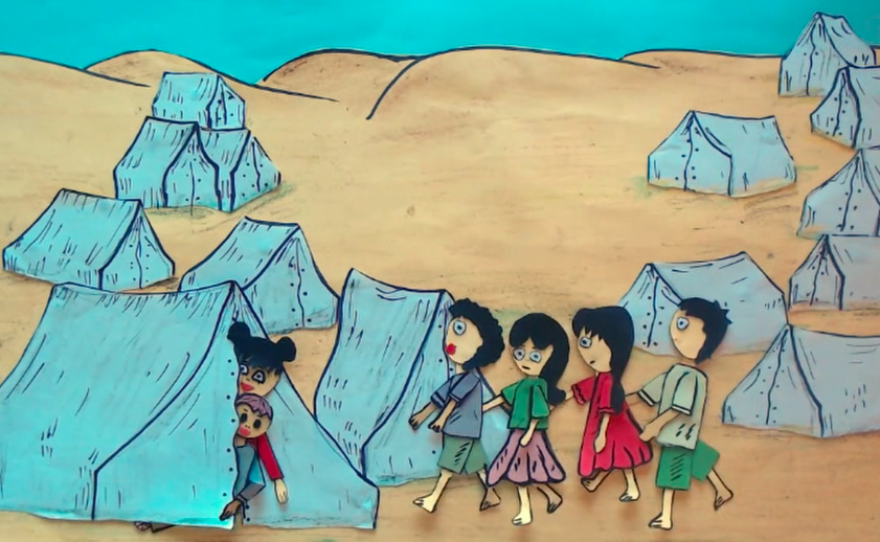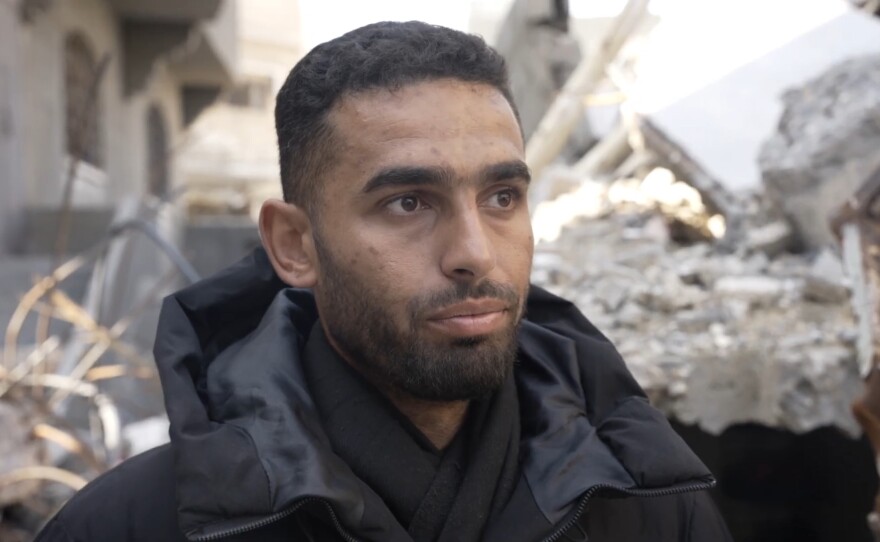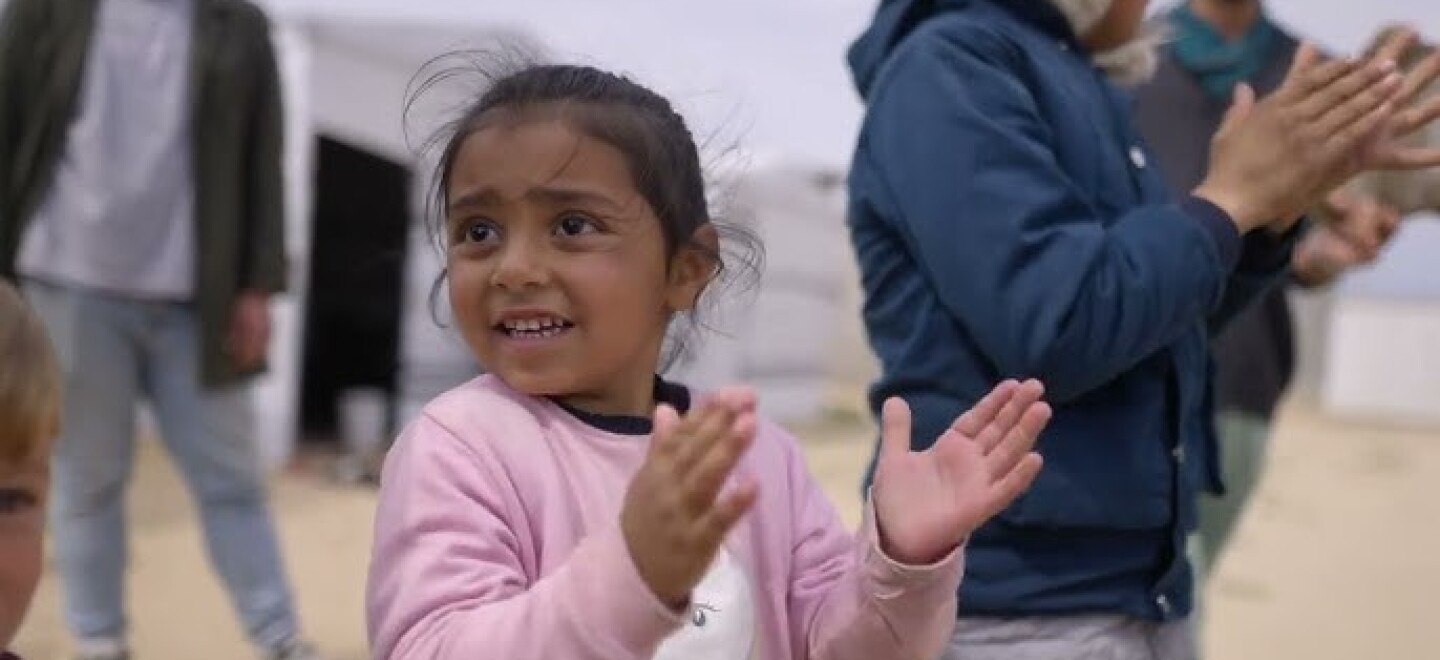Digital Gym Cinema continues with its For Your Consideration (FYC) series of films, giving filmgoers a final chance to see 2024 releases that have garnered attention during this busy awards season. This week, in addition to Palestine's "From Ground Zero," you can see "Anora," "Queer," "Flow," "Soundtrack to a Coup d'Etat" and "Emilia Pérez."
Best International Feature Film category requirements
The Best International Feature Film category differs from the main Oscar categories that audiences are most familiar with. In this category, each country is allowed to submit one official film. A special committee watches all submitted films and votes to create a shortlist (usually around 15 films). Next, the shortlisted films are viewed by a separate nominating committee, which selects the five nominees. Finally, the winner is chosen by all eligible Academy members who have watched the nominated films.
For countries with small film industries, selecting a film to submit can be easy. But for a country like India, which produces upwards of a thousand movies a year, deciding which film to submit can be controversial and emotionally charged. This year, India submitted "Laapataa Ladies" over the critical favorite "All We Imagine as Light." Their choice could be deemed flawed since it did not make the shortlist, and perhaps "All We Imagine as Light" would have fared better.
In 2003, Palestine submitted its first official entry, "Divine Intervention," for the then-named Best Foreign Film category. It was not nominated. But two years later, "Paradise Now" became the first Palestinian entry to receive a nomination in the category, with "Omar" being the second. Both films were directed by Hany Abu-Assad.
This year, Palestine entered its 17th submission in the now-renamed Best International Feature Film category. "From Ground Zero" has been shortlisted, with the nominations set to be announced on Jan. 23.
Palestine has two other Oscar hopefuls this year: the Palestinian-Israeli documentary "No Other Land" (shortlisted in the Best Documentary Feature category) and Mohammed al-Mughanni’s short film "An Orange from Jaffa" (shortlisted in the live-action short film category).

'From Ground Zero'
"From Ground Zero" is a collection of 22 shorts curated, coordinated and funded by Gaza-born Palestinian filmmaker Rashid Masharawi. While the film its place on the Oscar shortlist, it does not have the backing of a big player like Netflix to fund an ad campaign and make the film readily available to both mainstream audiences and Academy voters. "From Ground Zero" has a U.S. distributor in Watermelon Pictures, but the company is young and small compared to Netflix and Sony.
U.S. filmmaker Michael Moore (who won the Best Documentary Oscar for "Bowling for Columbine") recently joined the project as an executive producer. However, Moore has a complicated and controversial relationship with both Hollywood and the Academy, and his involvement may not significantly boost the film's Oscar chances.
“From Ground Zero” blends documentary and docu-fiction, with filmmakers offering very personal stories about what living in Gaza today means. The fact that these films were produced at all is something of a miracle. While cell phones and editing software have made filmmaking more accessible, these filmmakers faced extreme hardships. Even finding a place to charge a cell phone can be a challenge. In "Sorry Cinema," filmmaker Ahmed Hassouna burns his clapboard to make a fire, commenting, "All I can say is: Cinema, forgive me."
Filmmakers incorporate archival footage of Gaza from before the current war as a contrast to present-day life, as in "Jad and Natalie." And in "24 Hours," Alaa Damo uses cell phone video to document how one man came under attack three times in 24 hours and had to be dug out from rubble twice.

The most affecting film for me was "Soft Skin." In "Soft Skin," Khamis Masharawi oversees a makeshift animation stand where children create an animated film with paper cutouts about living through bombings and having their mothers write their names on their arms and legs so their bodies can be identified if they are killed. The children reveal these markings ,but one girl explains how she rubbed them off of her body and her younger sibling's because thinking about what they meant kept them awake at night.
In "Taxi Wanissa," Etimad Washah interrupts her narrative short about a Gazan donkey to explain that she can't finish her film because of personal losses she has suffered. Sometimes there is dark humor, as in "Hell's Heaven," where a man steals a body bag, explaining that he'll eventually end up in one anyway, so he might as well use it to stay warm at night.
But what is most amazing is how many of the films highlight joy, hope and beauty despite the horrific conditions. In "No," Hana Eleiwa and her friends adamantly say no to hate, violence and "everything that destroys our hopes."
"From Ground Zero" eschews overt politics, focusing instead on a diverse array of personal experiences by filmmakers living in Gaza today. The film provides a Palestinian perspective on current events, a side rarely seen in U.S. mainstream media. While the conflict stirs strong passions and emotions on both sides, the film reminds us that there are innocent people on both sides who deserve empathy and compassion.
San Diego is fortunate to have both an Arab and a Jewish film festival to showcase as many voices as possible. The San Diego International Jewish Film Festival starts Jan. 27, and Karama will present the San Diego Arab Film Festival in April.
10 Palestinian films to watch
- "Divine Intervention" (2002)
- "Paradise Now" (2005)
- "The Time That Remains" (2009)
- "Lemon Tree" (2009)
- "Five Broken Cameras" (2011)
- "Omar" (2013)
- "200 Meters" (2020)
- "The Teacher" (2023)
- "Prophets of Change" (2023)
- "No Other Land" (2024)






